Toyota dominates the list of 20 vehicles that can exceed 300,000 miles, with the 1983-1989 4Runner reaching an astonishing 1.4 million miles. Honda models like the Accord and CR-V also demonstrate exceptional longevity, while Lexus offers luxury options with surprising durability.
Investing in a vehicle built to last offers significant financial benefits through reduced depreciation and lower lifetime ownership costs.
When properly maintained, these durable vehicles can save owners thousands of dollars compared to replacing cars every few years.
Based on documented owner reports and reliability data, here are the 20 vehicles most likely to surpass 300,000 miles.
20. Subaru Legacy (2009-2014): 287,000 Miles

The fifth-generation Subaru Legacy combines sporty handling with impressive durability. Based on the Outback platform, this midsize sedan offers comfortable seating and reliable performance for long-term ownership. Subaru is one of the vehicles that will last over 250000 miles.
| Owner Report Date | Model | Source | Miles Reported |
|---|---|---|---|
| 2023 | 2009 Legacy Base | 287,000 miles | |
| 2024 | 2009 Legacy Base | Cars.com | 189,209 miles |
The Legacy’s boxer engine design, while unique, has proven remarkably durable when properly maintained. Regular oil changes every 5,000 miles and timing belt replacements at 105,000-mile intervals are critical for maximizing longevity.
19. GMC Yukon/Yukon XL (2007-2014): 302,000 Miles – Longest Lasting Car

The third-generation GMC Yukon, especially models equipped with the 5.3L Vortec V8, demonstrates exceptional longevity. Consumer reports GMC Yukon is longest lasting cars available. This full-size SUV offers both passenger comfort and workhorse capability.
| Owner Report Date | Model | Source | Miles Reported |
|---|---|---|---|
| 2023 | 2007 Yukon SLT 5.3 | 302,000 miles | |
| 2024 | 2007 Yukon SLT | Cars.com | 266,043 miles |
The 5.3L V8 engine is particularly noted for its durability, with many owners reporting trouble-free operation well beyond 250,000 miles with proper maintenance. The robust body-on-frame construction contributes significantly to the vehicle’s longevity.
18. Lexus RX (2004-2009): 307,050 Miles – Most Reliable Long Lasting Vehicle

The second-generation Lexus RX combines Toyota reliability with luxury features, which makes it one of the most reliable longest lasting vehicles in the market. Standard amenities include wood interior trim, power front seats, and dual-zone climate control, all built to last hundreds of thousands of miles.
| Owner Report Date | Model | Source | Miles Reported |
|---|---|---|---|
| March 2023 | 2007 RX 350 | Owner review | 307,050 miles |
| November 2013 | 2004 RX 330 3.3 | CarSurvey | 205,000 miles |
Despite its luxury status, the RX maintains reasonable maintenance costs, with many owners reporting that interior components and electronics hold up remarkably well even at high mileage. The 3.3L V6 engine is particularly noted for its durability.
17. Toyota Land Cruiser (1998-2007): 310,685 Miles – High Milage SUV

The J100 Land Cruiser represents Toyota’s commitment to extreme durability. With military heritage influencing its design, this SUV is engineered to last over 25 years under harsh conditions. It’s an all-time favorite SUV that will last 250000 miles.
| Owner Report Date | Model | Source | Miles Reported |
|---|---|---|---|
| October 2021 | 2001 Land Cruiser GLX 3.0 TD | CarSurvey | 310,685 miles |
| 2024 | 1998 Land Cruiser Base | Cars.com | 329,951 miles |
The Land Cruiser’s exceptional durability stems from its overbuilt 4.7L V8 engine with forged internals, heavy-duty cooling system designed for extreme heat, robust full-time 4WD system with locking center differential, and body-on-frame construction with thick, corrosion-resistant steel.
16. Toyota Avalon (1995-1999): 320,000 Miles – Longest Lasting Sedan

The first-generation Toyota Avalon has earned a reputation as one of the longest-lasting sedans available. Based on an extended Camry platform, it offers additional comfort while maintaining Toyota’s legendary reliability.
| Owner Report Date | Model | Source | Miles Reported |
|---|---|---|---|
| March 2020 | 1998 Avalon 3.0 V6 | CarSurvey | 320,000 miles |
| February 2011 | 1996 Avalon | CarSurvey | 312,000 miles |
| May 2012 | 1998 Avalon 3.0 | CarSurvey | 302,000 miles |
One owner described their 320,000-mile 1998 Avalon as “One of the most reliable mechanical objects known to man,” highlighting the model’s exceptional durability. The Avalon’s 3.0L V6 engine received several upgrades from the Camry version, including an improved intake design for smoother operation.
15. Toyota Sequoia (2001-2007): 350,000 Miles – Most Dependable High Milage Car

The first-generation Sequoia combines ruggedness with spaciousness. Its 4.7L V8 engine (240 hp in 2001-2004 models) provides reliable power for hundreds of thousands of miles. It is considered one of the most dependable high milage cars.
| Owner Report Date | Model | Source | Miles Reported |
|---|---|---|---|
| 2023 | 2003 Sequoia SR5 V8 | Owner report | 350,000 miles |
| January 2024 | 2005 Sequoia | YouTube | 321,830 miles |
The Sequoia’s truck-based platform provides a robust foundation for long-term durability. Critical maintenance includes timing belt replacement at 90,000 miles, lower ball joint inspection at 100,000 miles, and addressing exhaust manifold issues promptly.
14. Toyota Highlander (2001-2007): 388,125 Miles

The first-generation Highlander offers exceptional reliability in a family-friendly package. Both V6 and four-cylinder engines have demonstrated impressive longevity.
| Owner Report Date | Model | Source | Miles Reported |
|---|---|---|---|
| February 2023 | First-gen Highlander | YouTube | 388,125 miles |
| May 2015 | 2003 Highlander Limited AWD 3.0L V6 | CarSurvey | 277,100 miles |
One owner described their Highlander as “Reliable to the point of loyalty, and boring,” highlighting the model’s exceptional dependability. The most reliable engine options include:
| Engine | Reliability Rating | Notes |
|---|---|---|
| 2.4L 4-cylinder | 9/10 | Simplest design, lowest maintenance |
| 3.0L V6 | 8/10 | More power, slightly higher maintenance |
| 3.3L V6 (2004+) | 9/10 | Improved design, very reliable |
13. Toyota Corolla (2007-2013): 415,519 Miles

The tenth-generation Corolla continues Toyota’s tradition of building economical cars with extraordinary durability. With annual maintenance costs averaging just $362, it’s also economical to maintain.
| Owner Report Date | Model | Source | Miles Reported |
|---|---|---|---|
| 2023 | 2013 Corolla CE | 415,519 miles | |
| 2024 | 2009 Corolla S | Cars.com | 276,077 miles |
The Corolla’s combination of low purchase price, excellent fuel economy, and minimal maintenance requirements results in the lowest total cost of ownership among its competitors:
| Vehicle | 10-Year Ownership Cost | Cost Per Mile (250k miles) |
|---|---|---|
| Toyota Corolla | $32,000 | $0.128 |
| Honda Civic | $35,000 | $0.140 |
| Hyundai Elantra | $33,500 | $0.134 |
12. Nissan Altima (1998-2001): 420,000 Miles

The second-generation Altima has earned praise for its exceptional durability. Its straightforward design and robust construction contribute to its ability to exceed 400,000 miles.
| Owner Report Date | Model | Source | Miles Reported |
|---|---|---|---|
| June 2014 | 1999 Altima GXE | CarSurvey | 420,000 miles |
| September 2009 | 1998 Altima GXE | CarSurvey | 287,000 miles |
| September 2015 | 1999 Altima | CarSurvey | 256,290 miles |
One owner enthusiastically declared the Altima to be “hands down, one of the best cars ever built,” after accumulating 420,000 miles. The Altima’s simple design and accessible maintenance points make it an excellent choice for high-mileage operation.
11. Toyota RAV4 (2019-Present): 450,000 Miles

The current-generation RAV4, including its hybrid variant, has already demonstrated impressive durability potential. Commercial users have pushed these vehicles to extreme mileages in short timeframes.
| Owner Report Date | Model | Source | Miles Reported |
|---|---|---|---|
| December 2023 | 2020 RAV4 Hybrid XSE | 450,000 miles |
Contrary to early concerns about hybrid longevity, the RAV4 Hybrid has proven exceptionally reliable:
| Powertrain | Reliability Rating | Notes |
|---|---|---|
| 2.5L 4-cylinder | 9/10 | Simple, proven design |
| 2.5L Hybrid | 9/10 | Surprisingly durable, lower maintenance |
The electric motors in the hybrid system actually reduce stress on the gasoline engine and braking system, potentially contributing to even greater longevity than the conventional model.
10. Toyota Camry (1997-2001): 500,000 Miles

The fourth-generation Camry offers exceptional reliability with both 4-cylinder and V6 engine options. Multiple examples have exceeded 400,000 miles with proper maintenance.
| Owner Report Date | Model | Source | Miles Reported |
|---|---|---|---|
| June 2022 | 1999 Camry | Owner report | 500,000 miles |
| 2022 | Fourth-gen Camry | Owner report | 402,000 miles |
| June 2013 | 1999 Camry LE 2.2 | CarSurvey | 250,000 miles |
The Camry’s engine options both offer exceptional reliability:
| Engine | Reliability Rating | Maintenance Considerations |
|---|---|---|
| 2.2L 4-cylinder | 10/10 | Timing chain (no replacement needed) |
| 3.0L V6 | 9/10 | Timing belt (replace at 90k miles) |
9. Toyota Prius (2015-2022): 500,000 Miles

The fourth-generation Prius has shattered misconceptions about hybrid durability. Both private owners and commercial fleets have reported exceptional longevity, even with the original hybrid battery.
| Owner Report Date | Model | Source | Miles Reported |
|---|---|---|---|
| April 2022 | 2017 Prius | Owner report | 500,000 miles |
| 2023 | Fourth-gen Prius | 350,000 miles |
Contrary to early concerns, Prius battery packs have demonstrated remarkable longevity:
- Average battery life exceeds 200,000 miles
- Many original batteries still functional beyond 300,000 miles
- Replacement costs have decreased significantly (now often under $2,000)
Commercial taxi fleets worldwide have embraced the Prius for its combination of fuel efficiency and reliability under extreme conditions, with New York City taxi Prius models averaging 300,000+ miles before retirement.
8. Lexus ES (2002-2006): 596,000 Miles
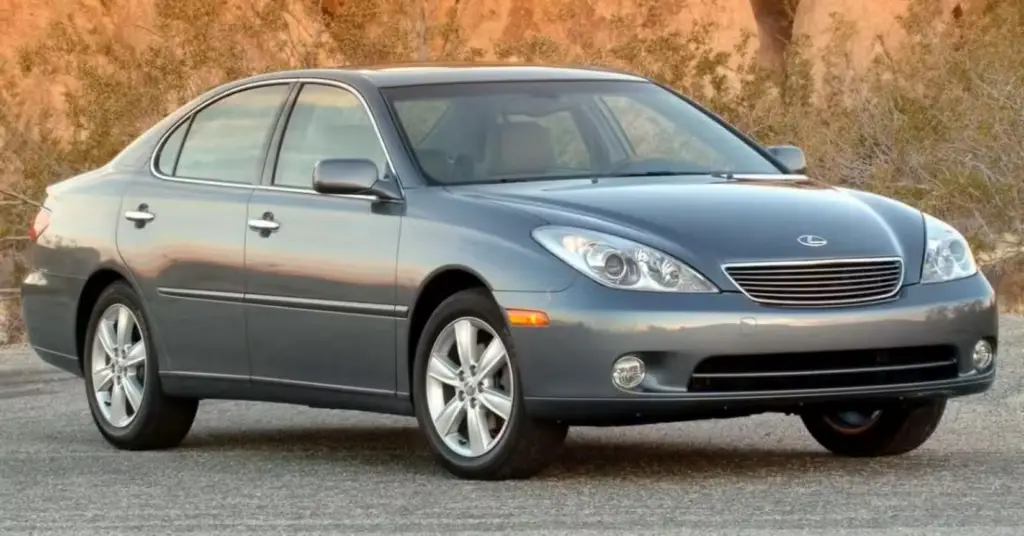
The fourth-generation Lexus ES combines Toyota reliability with luxury features. With annual maintenance costs averaging $468, it’s also relatively economical to maintain for a luxury vehicle.
| Owner Report Date | Model | Source | Miles Reported |
|---|---|---|---|
| February 2019 | Fourth-gen ES 300 | Owner report | 596,000 miles |
| 2024 | 2003 ES 300 | Cars.com | 317,594 miles |
The ES’s relationship to the Toyota Camry platform contributes significantly to its exceptional durability, while offering a more refined driving experience and premium features that hold up well over time.
7. Lexus CT 200h (2011-2017): 600,000 Miles
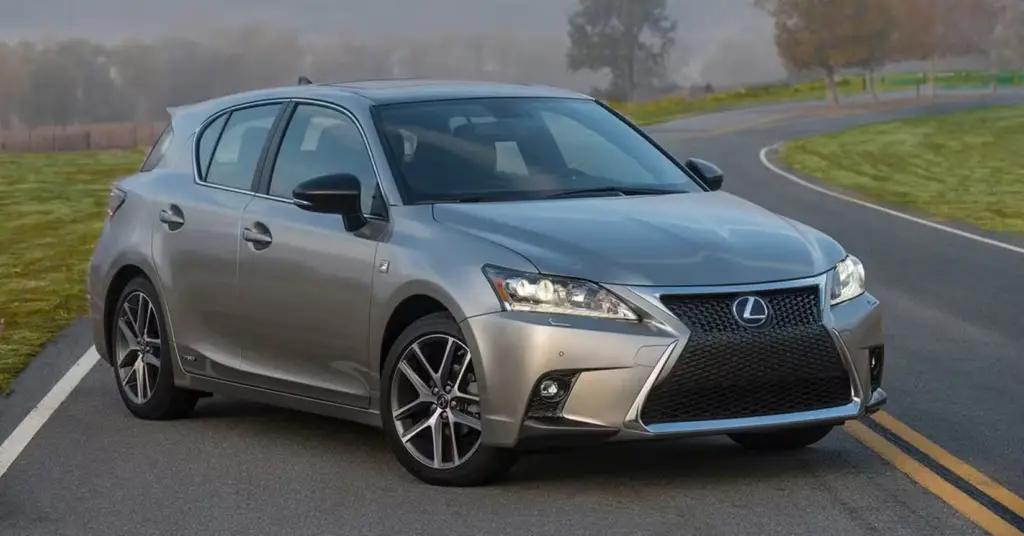
The Lexus CT 200h leverages Toyota Prius technology with luxury refinements. Its 1.8L hybrid powertrain (134 hp combined) has proven exceptionally durable, especially in commercial use.
| Owner Report Date | Model | Source | Miles Reported |
|---|---|---|---|
| October 2020 | CT 200h | ClubLexus | 600,000 miles |
| February 2017 | 2012 CT 200h 1.8 | CarSurvey | 187,000 miles |
One Redditor went as far as calling the CT 200h “the most reliable Lexus car,” which is quite a statement considering the renowned reliability of Lexus vehicles. The model combines the proven Prius powertrain with luxury amenities that stand the test of time.
6. Honda Civic (2016-2021): 773,493 Miles
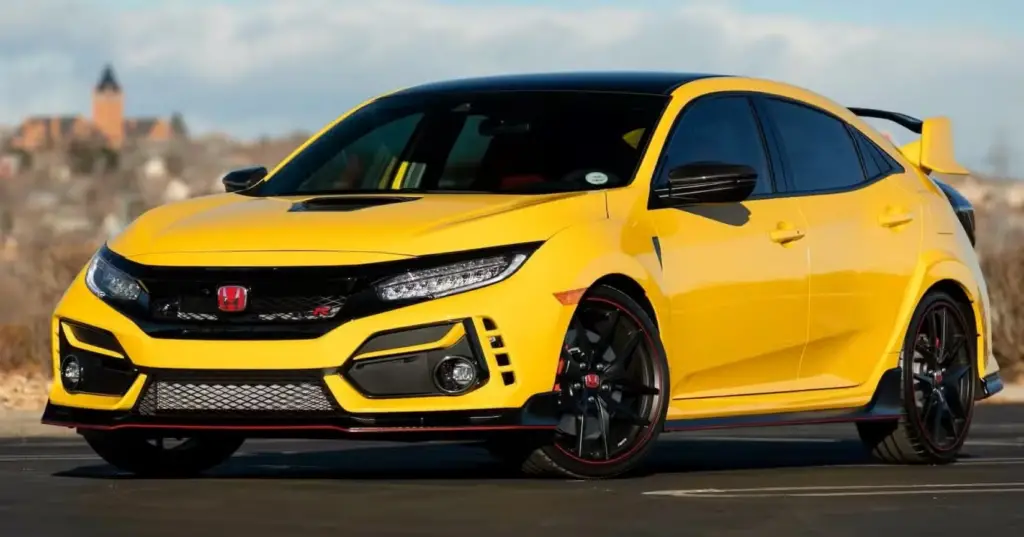
The tenth-generation Civic combines sporty handling with Honda’s reputation for durability. Commercial users have pushed these vehicles to extreme mileages in remarkably short timeframes.
| Owner Report Date | Model | Source | Miles Reported |
|---|---|---|---|
| December 2023 | 2017 Civic | YouTube | 773,493 miles |
| 2024 | 2018 Civic LX | Cars.com | 272,038 miles |
The most reliable Civic trim levels and engines include:
| Trim/Engine | Reliability Rating | Notes |
|---|---|---|
| LX (2.0L NA) | 9/10 | Simplest design, lowest maintenance |
| EX (1.5L Turbo) | 8/10 | More power, slightly higher maintenance |
| Si (1.5L Turbo) | 7/10 | Performance-tuned, requires attentive maintenance |
While all Civic variants have shown good reliability, the naturally-aspirated 2.0L engine in the LX trim has the edge for those prioritizing maximum longevity.
5. Honda CR-V (2005-2007): 998,275 Miles
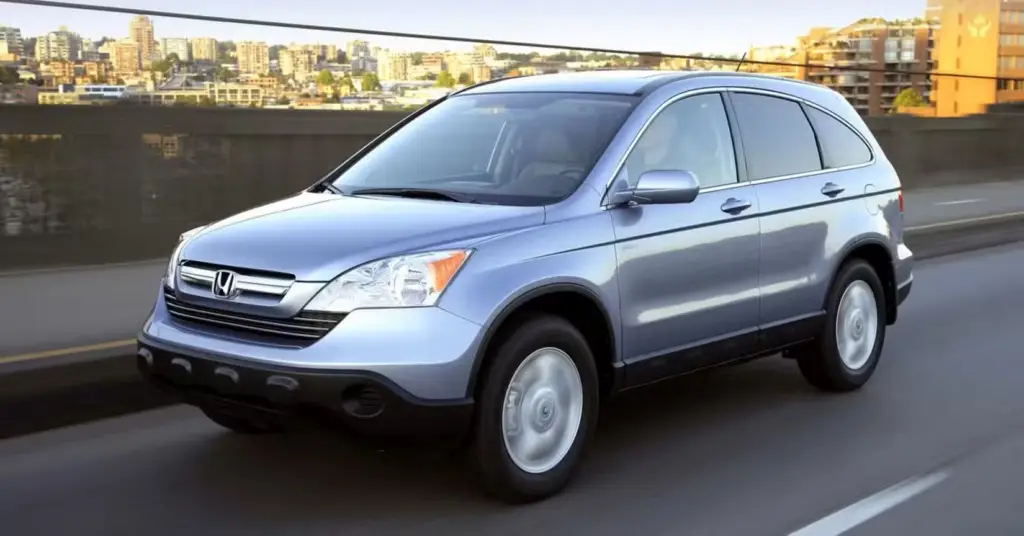
The third-generation CR-V offers exceptional reliability with reasonable maintenance costs (averaging $407 annually). Its 2.4L engine (166 hp) provides adequate power with excellent fuel economy.
| Owner Report Date | Model | Source | Miles Reported |
|---|---|---|---|
| 2019 | 2007 CR-V | Owner report | 998,275 miles |
| February 2024 | 2005 CR-V | 405,000 miles |
Key factors contributing to the CR-V’s exceptional longevity include:
- Robust K24 2.4L 4-cylinder engine with timing chain (no belt replacement needed)
- Simple, proven all-wheel-drive system with minimal complexity
- High-quality suspension components that withstand heavy use
- Corrosion-resistant body panels and frame construction
- Practical design allowing easy access for maintenance
4. Hyundai Elantra (2011-2016): 1,000,000 Miles

The fifth-generation Elantra demonstrates Hyundai’s commitment to reliability. One documented example reached 1 million miles in just five years of commercial use, showcasing the model’s exceptional durability.
| Owner Report Date | Model | Source | Miles Reported |
|---|---|---|---|
| December 2018 | 2013 Elantra | Hyundai video | 1,000,000 miles |
| – | 2013 Elantra | Owner report | 255,000 miles |
According to CarEdge, the chances of an Elantra needing significant repairs in its first 10 years of service is low, at just 17.73 percent. This remarkable reliability represents Hyundai’s transformation from budget brand to reliability leader.
3. Ford F-150 (2009-2014): 1,000,000 Miles

The twelfth-generation F-150 combines workhorse capability with impressive longevity. Multiple examples have exceeded 250,000 miles, with one documented case reaching 1 million miles.
| Owner Report Date | Model | Source | Miles Reported |
|---|---|---|---|
| January 2023 | 2012 F-150 | YouTube | 1,000,000 miles |
| March 2024 | 2012 F-150 XLT SuperCrew 5.0 | CarSurvey | 270,000 miles |
| January 2018 | 2010 F-150 XL 4.6 | CarSurvey | 246,000 miles |
The F-150’s exceptional durability is particularly impressive given its workhorse status. Many owners report achieving extreme mileage while using their trucks for towing, hauling, and other demanding tasks.
2. Honda Accord (1990-1993): 1,003,440 Miles
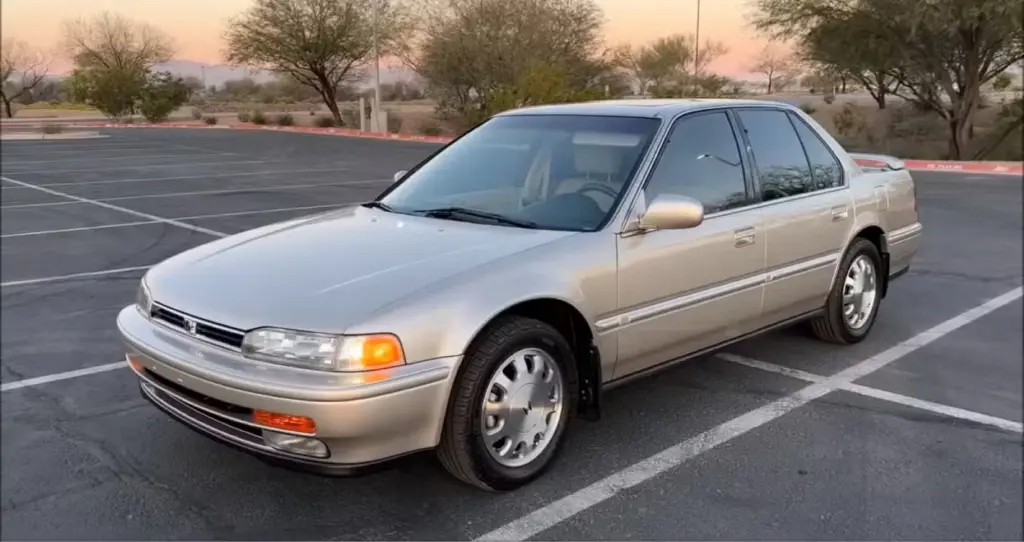
The fourth-generation Accord set the standard for sedan longevity. One documented example reached over 1 million miles with its original engine and transmission.
| Owner Report Date | Model | Source | Miles Reported |
|---|---|---|---|
| April 2023 | 1990 Accord | YouTube | 1,003,440 miles |
| July 2013 | 1990 Accord LX 2.2 | CarSurvey | 308,000 miles |
| February 2014 | 1991 Accord EX | CarSurvey | 290,000 miles |
Owner Joe LoCicero’s meticulous maintenance regimen included:
- Oil changes every 5,000 miles using high-quality synthetic oil
- Transmission fluid changes every 50,000 miles
- Coolant flushes every 30,000 miles
- Spark plug replacement every 30,000 miles
- Timing belt replacement every 100,000 miles
This fastidious approach, combined with Honda’s robust engineering, allowed the vehicle to surpass the million-mile mark with its original engine and transmission.
1. Toyota 4Runner (1983-1989): 1,442,300 Miles

The first-generation 4Runner holds the record for highest documented mileage. Its simple, rugged design and overbuilt components contribute to its exceptional durability.
| Owner Report Date | Model | Source | Miles Reported |
|---|---|---|---|
| November 2011 | 1988 4Runner SR5 2.4 22R-E | CarSurvey | 1,442,300 miles |
| May 2009 | 1987 4Runner DX 22RE | CarSurvey | 520,000 miles |
| August 2004 | 1988 4Runner SR5 2.2 | CarSurvey | 450,000 miles |
One owner enthusiastically recommended the first-generation 4Runner, saying “It looks great, extremely reliable and economical – buy one!” This sentiment is echoed throughout various owner reviews, highlighting the model’s exceptional durability.
What Makes These Vehicles Last So Long?
Several key engineering principles contribute to vehicle longevity:
| Factor | Description | Example |
|---|---|---|
| Drivetrain Simplicity | Fewer components mean fewer potential failure points | Toyota 4Runner’s straightforward 4-cylinder engine |
| Overbuilt Components | Parts designed to withstand more stress than typically encountered | Land Cruiser’s heavy-duty cooling system |
| Conservative Tuning | Engines tuned for reliability rather than maximum performance | Toyota’s approach to power ratings |
| Quality Materials | Higher-grade metals and plastics in critical components | Honda’s use of forged engine internals |
| Proven Technology | Using well-tested designs rather than cutting-edge features | Toyota’s gradual implementation of new technologies |
Maintenance Practices That Extend Vehicle Life
Proper maintenance is crucial for achieving extreme mileage:
| Maintenance Practice | Recommended Interval | Benefit |
|---|---|---|
| Oil Changes | 5,000-7,500 miles | Prevents engine wear and contamination |
| Transmission Fluid | 30,000-60,000 miles | Extends transmission life |
| Timing Belt/Chain | 90,000-100,000 miles | Prevents catastrophic engine failure |
| Coolant Replacement | 60,000-100,000 miles | Prevents corrosion and overheating |
| Suspension Inspection | 50,000 miles | Identifies wear before failure |
High Milage Car Brand Reliability Comparison
| Brand | Models in Top 20 | Highest Reported Mileage |
|---|---|---|
| Toyota | 9 | 1,442,300 miles (4Runner) |
| Honda | 3 | 1,003,440 miles (Accord) |
| Lexus | 3 | 600,000 miles (CT 200h) |
| Ford | 1 | 1,000,000 miles (F-150) |
| Hyundai | 1 | 1,000,000 miles (Elantra) |
| GMC | 1 | 302,000 miles (Yukon) |
| Subaru | 1 | 287,000 miles (Legacy) |
| Nissan | 1 | 420,000 miles (Altima) |
Financial Benefits of High-Mileage Vehicles
Choosing vehicles built to last offers significant financial advantages:
| Cost Factor | 3 Cars Over 10 Years | 1 Car for 10 Years |
|---|---|---|
| Initial Purchase | $75,000 ($25,000 × 3) | $25,000 |
| Depreciation | $45,000 | $15,000 |
| Registration/Taxes | $6,000 | $2,000 |
| Insurance | $18,000 | $12,000 |
| Maintenance | $12,000 | $8,000 |
| Total Cost | $156,000 | $62,000 |
| Cost Per Mile (150,000) | $1.04/mile | $0.41/mile |
Common High-Mileage Issues and Prevention
Even the most reliable vehicles have potential weak points:
| Vehicle | Common Issue | Prevention |
|---|---|---|
| Toyota Land Cruiser | Lower ball joint wear | Inspect at 100,000 miles, replace proactively |
| Toyota 4Runner | Timing belt failure | Replace every 90,000 miles (V6 models) |
| Honda Accord | Transmission failure | Change fluid every 30,000 miles |
| Ford F-150 | Spark plug ejection (5.4L) | Use proper torque specs, consider preventive repair |
| Toyota Camry | Valve cover gasket leaks | Inspect at 120,000 miles |
| Lexus ES | Power steering pump failure | Flush fluid every 60,000 miles |
| Subaru Legacy | Head gasket failure | Use Subaru coolant, monitor temperatures |
| GMC Yukon | Fuel pump failure | Replace fuel filter every 30,000 miles |
How To Buy A Used High-Mileage Vehicle
When shopping for a high-mileage vehicle, consider these factors:
| Inspection Point | What To Look For | Red Flag |
|---|---|---|
| Service Records | Complete history with regular maintenance | Missing oil change records |
| Engine | Smooth idle, no unusual noises | Blue smoke from exhaust |
| Transmission | Smooth shifts, no slipping | Delayed engagement or harsh shifts |
| Cooling System | No leaks, clean coolant | Milky oil (head gasket failure) |
| Suspension | No excessive bouncing or noise | Uneven tire wear |
| Body/Frame | Minimal rust, straight panels | Rust perforation or accident damage |
| Electronics | All systems functioning properly | Warning lights on dashboard |
| Exhaust | No excessive smoke or noise | Rattling catalytic converter |
| Fluids | Clean, proper levels, no contamination | Dark transmission fluid with burnt smell |
| Test Drive | Smooth acceleration, braking, handling | Vibrations, pulling to one side |
The Million-Mile Club: Lessons from Extreme Cases
Vehicles that have surpassed 1,000,000 miles offer valuable insights into maximizing longevity:
| Vehicle | Owner | Key Maintenance Practices | Current Status |
|---|---|---|---|
| 1988 Toyota 4Runner | Mike Morris | Oil changes every 3,000 miles, transmission fluid every 30,000 | Still running at 1,442,300 miles |
| 1990 Honda Accord | Joe LoCicero | Oil changes every 5,000 miles, timing belt every 100,000 | Retired at 1,003,440 miles |
| 2012 Ford F-150 | Victor Sheppard | Dealer service only, oil changes every 5,000 miles | Traded to Ford at 1,000,000 miles |
| 2013 Hyundai Elantra | Farrah Haines | Oil changes every 3,000 miles, commercial driver | Still in service at 1,000,000+ miles |
These extreme examples share common maintenance approaches:
- More frequent fluid changes than manufacturer recommendations
- Immediate attention to minor issues before they escalate
- Consistent driving patterns (primarily highway miles)
- Original engines and transmissions maintained rather than replaced
Highway vs. City Driving: Impact on Vehicle Longevity
Driving conditions significantly affect a vehicle’s potential lifespan:
| Driving Type | Impact on Longevity | Reason |
|---|---|---|
| Highway | Positive | Less wear from fewer heat cycles, consistent operating temperature |
| City | Negative | More wear from frequent stops/starts, more heat cycles |
| Short Trips | Very Negative | Engine never reaches optimal temperature, moisture accumulation |
| Long-Distance | Very Positive | Optimal operating temperature, fewer cold starts |
Data from fleet vehicles shows that those driven primarily on highways typically last 20-30% longer than identical models used primarily for short urban trips.
Diesel vs. Gasoline for Longevity
While diesel engines have traditionally been associated with extreme longevity, modern emissions equipment has complicated this advantage:
| Engine Type | Pros | Cons | Best Applications |
|---|---|---|---|
| Diesel | Lower RPM operation, stronger internal components | Complex emissions systems, higher repair costs | Heavy-duty trucks, long-distance highway driving |
| Gasoline | Simpler emissions systems, lower maintenance costs | Higher RPM operation, more heat | Passenger cars, mixed driving conditions |
| Hybrid | Reduced engine stress, regenerative braking | Battery replacement costs, complex electronics | Urban driving, stop-and-go traffic |
Modern gasoline engines with proper maintenance can now routinely achieve 300,000+ miles, narrowing the traditional longevity gap with diesel engines.
The Future of Vehicle Longevity: Modern Vehicles
Recent technological advances present both opportunities and challenges for vehicle longevity:
| Technology | Potential Impact on Longevity | Consideration |
|---|---|---|
| Direct Injection | Negative (carbon buildup) | May require intake cleaning service |
| Turbocharging | Negative (heat, complexity) | More critical oil change adherence |
| CVT Transmissions | Negative (durability concerns) | Strict fluid change intervals |
| Hybrid Systems | Positive (reduced engine stress) | Battery replacement eventually needed |
| Advanced Electronics | Negative (repair complexity) | Specialized diagnostic equipment required |
| Aluminum Construction | Mixed (lighter but more damage-prone) | More expensive collision repair |
The most reliable modern vehicles continue to balance proven technology with careful implementation of new features, prioritizing durability over cutting-edge performance.
For those seeking maximum longevity in a new vehicle purchase, models that maintain simpler engineering approaches while incorporating selective technological improvements offer the best long-term value. Toyota and Honda continue to lead in this balanced approach, with Mazda showing significant improvements in recent reliability rankings.
Choose a vehicle with documented maintenance history and invest in a pre-purchase inspection by a qualified mechanic. With proper care, these high-mileage champions can provide reliable transportation for many years to come.